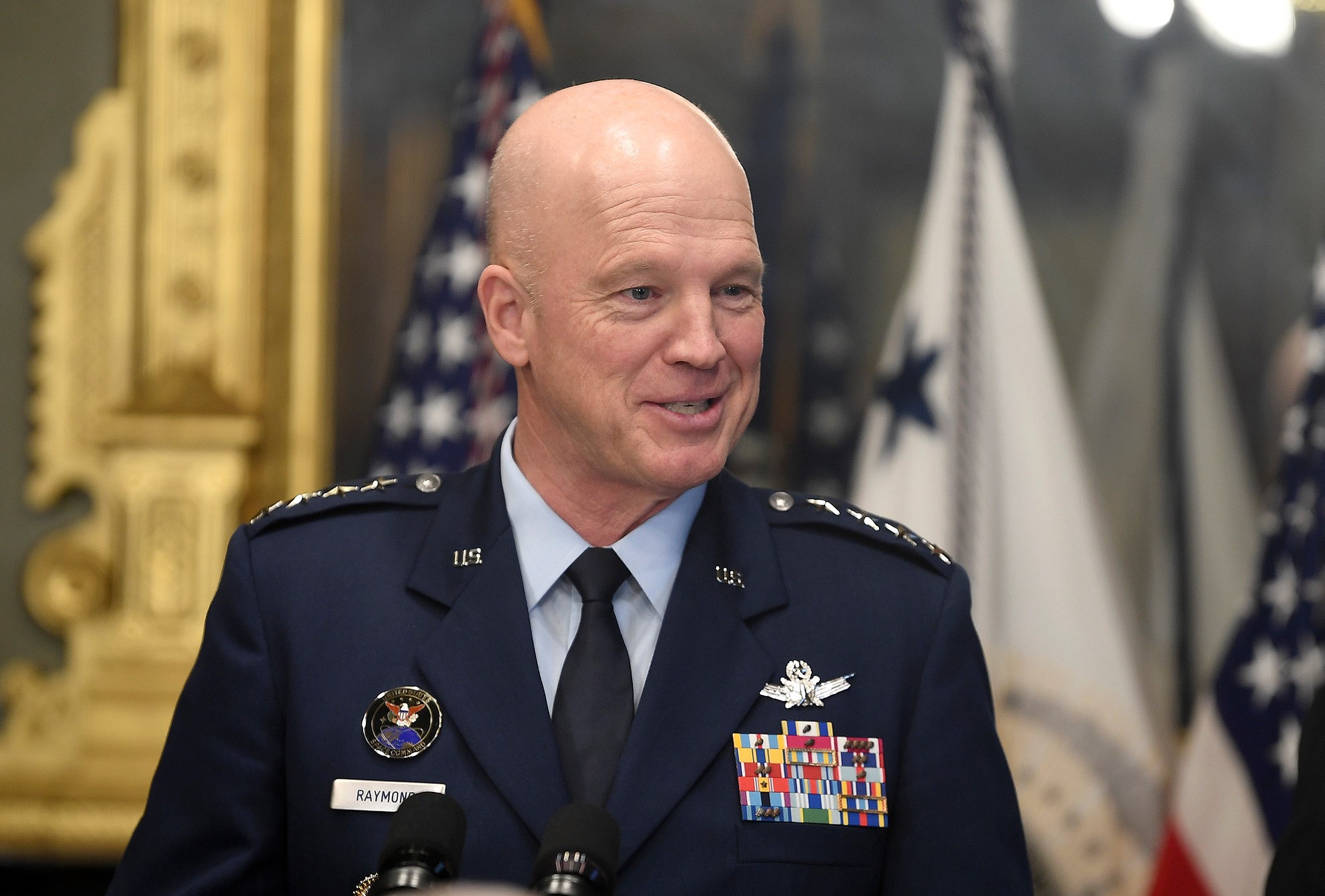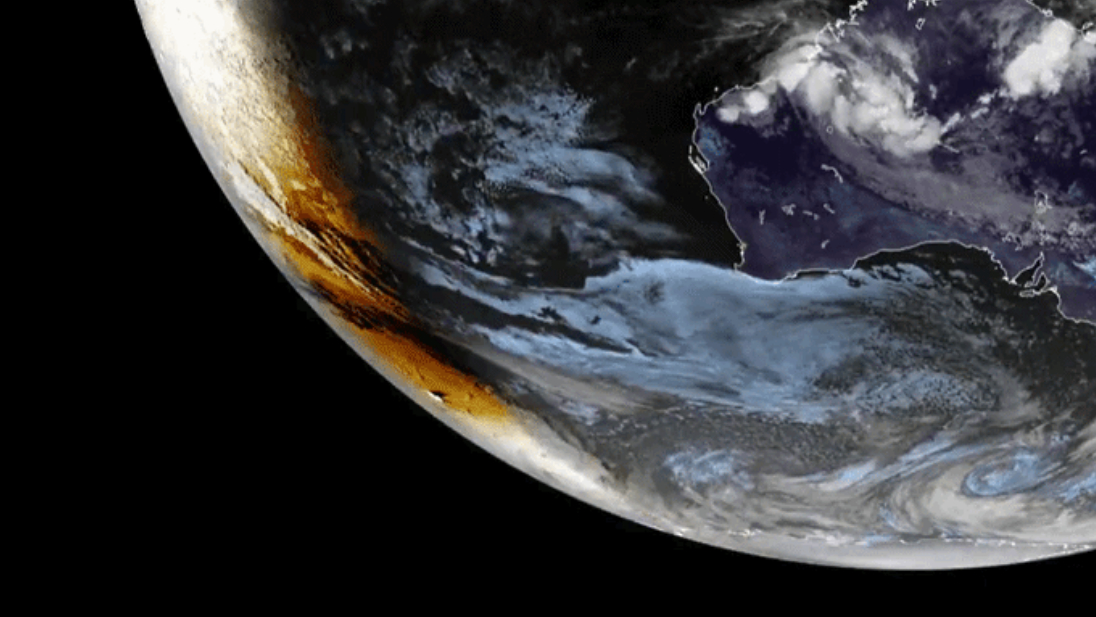'Get a haircut,' real Space Force chief tells Netflix 'Space Force' star Steve Carell

Breaking space news, the latest updates on rocket launches, skywatching events and more!
You are now subscribed
Your newsletter sign-up was successful
Want to add more newsletters?

Delivered daily
Daily Newsletter
Breaking space news, the latest updates on rocket launches, skywatching events and more!

Once a month
Watch This Space
Sign up to our monthly entertainment newsletter to keep up with all our coverage of the latest sci-fi and space movies, tv shows, games and books.

Once a week
Night Sky This Week
Discover this week's must-see night sky events, moon phases, and stunning astrophotos. Sign up for our skywatching newsletter and explore the universe with us!

Twice a month
Strange New Words
Space.com's Sci-Fi Reader's Club. Read a sci-fi short story every month and join a virtual community of fellow science fiction fans!
The leader of the real U.S. Space Force says he's looking forward to the Netflix show about the new military branch, but he has a note for series star and co-creator Steve Carell.
"The one piece of advice I'd give to Steve Carell is to get a haircut," Gen. Jay Raymond, the U.S. Space Force Chief of Space Operations, said good-naturedly on Wednesday (May 6) during a webinar hosted by the nonprofit Space Foundation.
"He's looking a little too shaggy if he wants to play the Space Force chief," said Raymond, whose own pate is nearly bereft of hair.
Related: Steve Carell's 'Space Force' farce will launch on Netflix May 29. See the new trailer.
Raymond added that, when news first leaked out about the series' development, he had been rooting for a follicularly challenged actor to land the lead role.
"I was hoping for Bruce Willis," Raymond said. "But Steve Carell's a great actor, and, I tell you, I love his shows. So, we're looking forward [to the new series]."
Netflix's "Space Force" premieres on May 29. The comedy stars Carell as Gen. Mark R. Naird, the fictional equivalent of Raymond, and also features John Malkovich, Ben Schwartz, Diana Silvers, Tawny Newsome, Lisa Kudrow, Jimmy O. Yang, Jane Lynch, Fred Willard and Noah Emmerich.
Breaking space news, the latest updates on rocket launches, skywatching events and more!
While Wednesday's webinar touched briefly on the show, its main focus was the real Space Force. Raymond and Secretary of the Air Force Barbara Barrett discussed the duties and future of the new military branch, which was officially established this past January. (The Space Force is part of the Department of the Air Force, like the Marine Corps is part of the Department of the Navy.)
The Space Force will help protect American space assets, deter aggression and establish norms of behavior in the final frontier, Raymond and Barrett said. Such work is vitally important now and into the future, they stressed, because space is no longer the benign domain it used to be and the United States' long-held dominance in this realm is under serious threat.
"So many of our systems are not defended and are vulnerable, and so it is important for us to deter aggressive action against American assets," Barrett said. "But if deterrence fails, we need to be prepared to defend and, if necessary, shoot back."
The nation is at a "strategic inflection," Raymond added, noting that the United States is dependent on space assets such as Global Positioning System satellites like never before.
"This is an opportunity to remain the best in the world, to stay ahead of those world threats," he said.
- Military space: spacecraft, weapons and tech
- 20 sci-fi movies and TV shows to binge watch on Netflix right now
- Can we prevent war in space? These guidelines may help
Mike Wall is the author of "Out There" (Grand Central Publishing, 2018; illustrated by Karl Tate), a book about the search for alien life. Follow him on Twitter @michaeldwall. Follow us on Twitter @Spacedotcom or Facebook.
OFFER: Save 45% on 'All About Space' 'How it Works' and 'All About History'!
For a limited time, you can take out a digital subscription to any of our best-selling science magazines for just $2.38 per month, or 45% off the standard price for the first three months.

Michael Wall is a Senior Space Writer with Space.com and joined the team in 2010. He primarily covers exoplanets, spaceflight and military space, but has been known to dabble in the space art beat. His book about the search for alien life, "Out There," was published on Nov. 13, 2018. Before becoming a science writer, Michael worked as a herpetologist and wildlife biologist. He has a Ph.D. in evolutionary biology from the University of Sydney, Australia, a bachelor's degree from the University of Arizona, and a graduate certificate in science writing from the University of California, Santa Cruz. To find out what his latest project is, you can follow Michael on Twitter.

